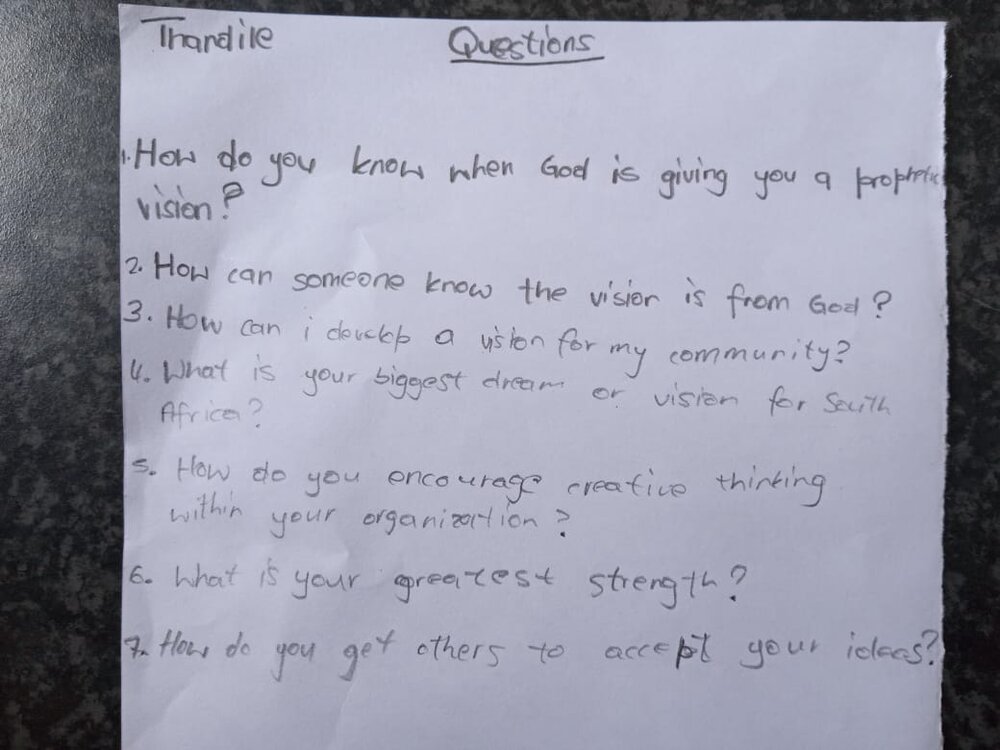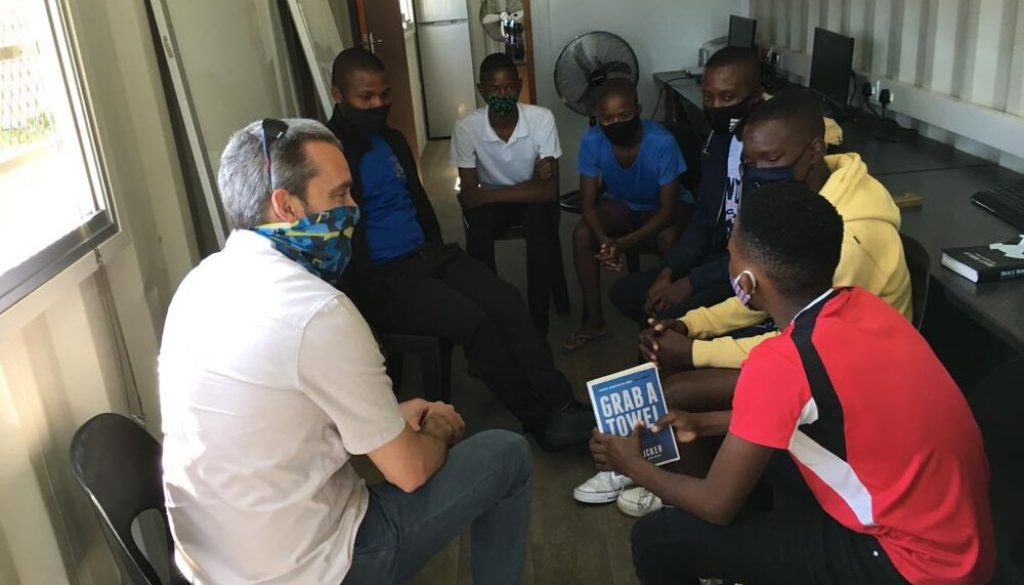The question of curiosity
An unrealistic expectation that many people have of leaders is that they can answer all our questions and solve all our problems. There is a danger that we want our leaders to be omniscient and we fail to recognise that the greatest leaders do not try to be the font of all knowledge. In fact, I’ve been wondering recently if the power of great leadership rather rests in the ability to remain curious by continuing to ask great questions. Those who aspire to be servant leaders, in particular, need to retain a posture of being teachable. And, I believe, teachability requires inquisitiveness; an innate desire to discover more about life, God, and others.
The important thing is to not stop questioning. Curiosity has its own reason for existing. Albert Einstein.
I recently had the privilege of visiting our community hub in Nyanga. It is an afterschool centre where we engage young people through various activities including sport, the arts, and education. These provide a platform for us to disciple them as we seek to raise up emerging leaders within one of the toughest neighbourhoods in Cape Town.
During the Covid-19 lockdown, many of our regular activities needed to be postponed. However, our local coordinator recognised a unique opportunity to invest in 8 of the teenagers. He formed a Leaders’ Table group and started taking them through the material covered in the book from which this blog gets its name: Grab a Towel. As they are approaching the end of the series of discussions, I was invited to go and share with the lads as part of a Q&A session. Although they were apparently a bit nervous about it, the emerging young leaders took time to prepare questions. What ensued was an incredible 90-minute discussion where their questions sparked deep discussions about the nature, character, role and vision of leaders. What encouraged me was that, rather than providing them with an exhaustive doctrine of leadership, studying Grab a Towel was actually causing them to ask more questions, to grapple with the concepts, and to consider how to relate it within their context. And, as they asked me questions, I also sought to deflect these back to them rather than being some kind of know-it-all guru.
These were Thandile’s questions – one of the Leaders’ Table group members in Nyanga

What an incredible example these young people are to the rest of us. The critical point is that this should not stop as we get older and more experienced. I hope these young men continue to think deeply, ask tough questions and remain inquisitive. So often we read books, attend courses, or go to conferences, with the expectation that some new information will enable us to function more efficiently and effectively. But what if a better outcome is that these encounters fuel our curiosity and lead us to think more deeply about how we can become more effective leaders in our context?
I think we do a disservice to emerging leaders if we seek to answer all their questions. Have you noticed that Jesus seemed to ask as many questions as he answered? I particularly love the interaction he had with his emerging leaders – the 12 disciples. Although he did teach and give explanations (e.g. sharing with the 12 the meaning of the parables), he also asked them questions and challenged them to engage their own minds in order to gain a deeper understanding. One of my favourite examples is in Matthew 16:13-16. Having already spent considerable time with his inner circle of followers, Jesus asks them two questions; “Who do people say I am?”, and “Who do you say I am?”. Jesus could easily have given them the answer on a plate. However, through asking these questions he was ensuring that his disciples were grappling with and owning the answers. Peter’s statement, “You are the Messiah, the Son of the living God”, is one of the most striking and breathtaking revelations in history. It was Jesus’ well-timed and probing questions that facilitated this response from Peter and were a major stepping stone in him becoming one of the most influential leaders in church history.
A good teacher asks himself the hardest questions, works through to answers, and then frames provocative questions for his learners to stimulate their thinking. John Piper.
It is a sad reality that many people seem to plateaux and stop growing as leaders. Life can have a way of weighing us down and wearing us out. The thrill of learning can fizzle and fade. However, I would challenge you to recapture your curiosity. Let’s not settle – because if we settle then we are not serving the next generation.
If you want to be a good mentor and serve emerging leaders, it’s important that you never stop growing, never stop learning and continue to ask tough questions. So, maybe start with reflecting on this question – what are you currently curious about? If you can recapture your curiosity, then it can open new horizons for you. The great thing about curiosity is that it can breed innovation – so perhaps your greatest discoveries still lie ahead of you.





November 2, 2020 @ 1:23 pm
Thanks Tim this blog itches where I scratch curiosity is what love to show and use when meet people. I love encouraging and building them up particularly to share Jesus with through building relationships over time
November 2, 2020 @ 2:11 pm
Thanks Steve. Yes – I think the tendency to think we have all the answers can actually hinder our interaction with people who don’t yet follow Jesus. Recognising that we don’t have all the answers helps us to humbly engage people as co-sojourners through life, rather than as gurus. Ultimately, we ourselves look to Him who was the only one who could claim to be the way, the truth and the life.